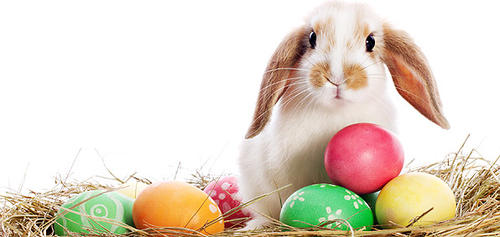 The History and Celebration of Easter
The History and Celebration of Easter
Easter, a Christian tradition, is about the resurrection of Jesus Christ after his crucifixion. It is also closely related to the Jewish Passover. The week before Easter Sunday is known as a holy week.
Although there is no fixed date for Easter, according to historical findings, The First Council of Nicaea (325) established the date for Easter as the first Sunday after the first full moon that occurs after 21st March. This is also known as Paschal Full Moon and that is why the date varies each year.
Some research points that the origin of Easter is an old European pagan festival of 'Ostara' which celebrated new life or that the word Easter was derived from 'Eastre', the Teutonic goddess of spring. The Arabian sun festival 'Ishtar' has also been singled out as the source of Easter by some researchers.
In the Bible, it is recorded that before Christ's crucifixion, he had the last supper with his disciples. The Passover and Easter symbolic features are very similar, as are their dates each year. In many languages, the words Easter and Passover are also similar.
Traditional Foods Enjoyed over the Easter Period
Throughout the world, there are many food traditions associated with the Easter period. Pickled fish, for example, is one of the popular is one of the popular South African Easter delights. A piping hot roast lamb dinner followed by melted butter on toasted hot cross buns are enjoyed by the British. Baba, babobka and pasha are various names for the sweet yeast cake enjoyed in Poland, Czech Republic, Russia, Finland and several other European countries. Of course, the Italians enjoy the traditional pizza followed by sweet rice pie. Pinza is enjoyed in Germany, Slovenia and Austria, while in Greece and Portugal families get together to share traditional round loaves marked with a cross and topped with Easter eggs. In the USA roast ham is the traditional food of choice.
The Infamous Easter Bunny
As children all around the world keep their eyes peeled for a glimpse of the Easter Bunny that traditionally brings chocolaty Easter egg delights on Easter Sunday morning, parents sneak out to hide the chocolate covered 'smiles' ready for the traditional Easter egg hunt. The actual rabbit, famously known as the "Easter Bunny", according to historic festivals symbolised new life and reproduction.
Easter Eggs
The custom of boiling and decorating eggs for Easter dates back to the 13th century. Easter eggs are derived from pagan celebrations.
While some countries celebrate Easter with an Easter parade to accompany the traditions of Easter, Christians find it symbolic of the empty tomb after Christ's resurrection.